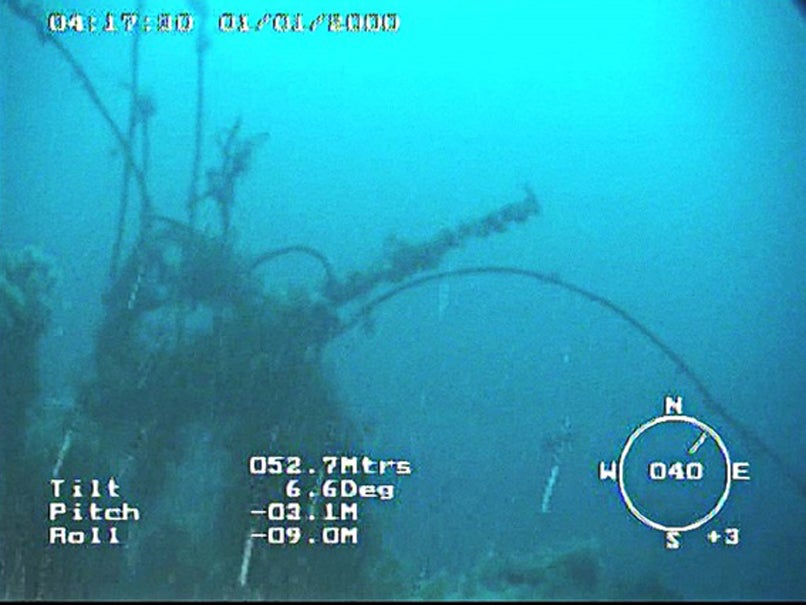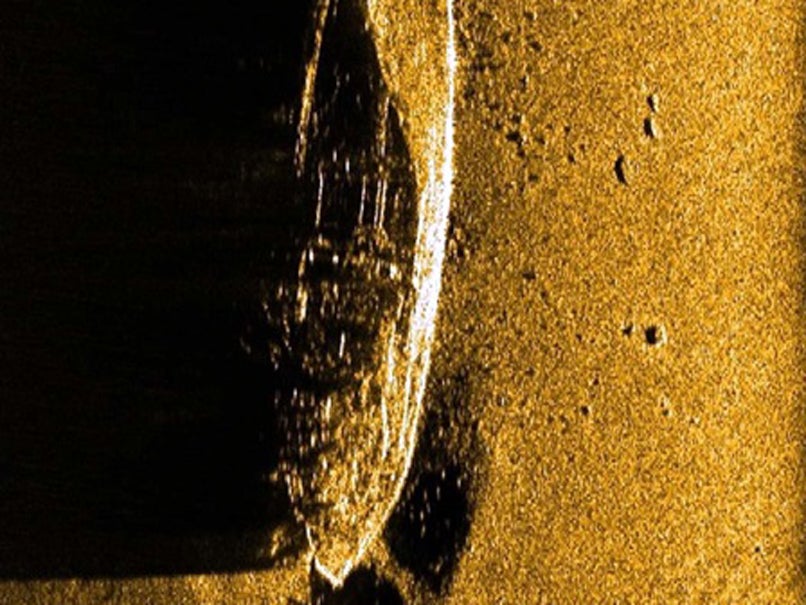Royal Navy wreck discovered 74 years after it sank in heavy storm
Inspection reveals 'no signs of explosion', putting to bed theories of U-boat attack

Your support helps us to tell the story
From reproductive rights to climate change to Big Tech, The Independent is on the ground when the story is developing. Whether it's investigating the financials of Elon Musk's pro-Trump PAC or producing our latest documentary, 'The A Word', which shines a light on the American women fighting for reproductive rights, we know how important it is to parse out the facts from the messaging.
At such a critical moment in US history, we need reporters on the ground. Your donation allows us to keep sending journalists to speak to both sides of the story.
The Independent is trusted by Americans across the entire political spectrum. And unlike many other quality news outlets, we choose not to lock Americans out of our reporting and analysis with paywalls. We believe quality journalism should be available to everyone, paid for by those who can afford it.
Your support makes all the difference.The wreck of a Second World War Royal Navy support vessel has been discovered 74 years after it sank in a heavy storm amid a U-boat attack on its convoy.
The Empire Wold was attempting a rescue after a tanker and another ship were torpedoed and sunk off Iceland in 1944 when she disappeared. Her 16 crew all perished in what some believed was the third U-boat attack on the group of ships.
German submariners from U-300 fervently denied having sunk the tug, however, when they were captured near Cadiz following the sinking of their own craft a few months later.
Analysis of the Empire Wold wreck “found no signs of any explosion”, the Royal Navy has said, and Icelandic coastguard analysts now believe she foundered in extremely heavy weather with winds up to 40 knots, the service added.
The military tug met her fate on 10 November 1944, as storm-force winds battered convoy UR-142 on its approach to Iceland from Loch Ewe, in Scotland.
The ships, grouped together for protection from marauding U-boats, were forced to split apart and as they did, U-300 pounced. It first torpedoed the gas oil tanker Shirvan, and then attacked the Icelandic vessel Godafoss when she moved in to pick up survivors.
The Godafoss sank in only four minutes while Empire Wold, also heading for the survivors, never arrived.

Among those lost were seven Royal Navy personnel, headed by Lieutenant David Morris, a 38-year-old reservist, and nine from the Merchant Navy. They included the tug’s master, Henry Draper, and engineer Oswin Green.
Green’s widow María Elisabet Frederiksen, now 94 and still living in Iceland, according to the navy, was left alone to look after their nine-month-old daughter Thorunn Elísabet Green.
Iceland’s coastguard used sonar to locate the wreck of the Empire Wold and, later, a submersible was sent down to inspect it.
Authorities will not reveal its precise location, the Royal Navy said, due to its status as the protected last resting place of navy personnel.
The Empire Wold was one of thousands of so-called Empire ships used to bolster the UK merchant fleet and aid the Royal Navy during the war.
Convoys – safety in numbers – were a lifeline for both Britain and Russia as they battled to survive against Hitler’s Germany. Sailors faced not just submarines but the threat of the north Atlantic’s notorious bad weather.
Isolated as an island nation, Britain relied on shipping from the US for food and other supplies like fuel, while the Soviet Union received both food and materiel, including tanks and warplanes, from the Allies.
The Kriegsmarine’s U-boat wolf packs exacted a heavy toll, sinking hundreds of thousands of tonnes-worth of ships and forcing the implementation of new anti-submarine tactics, technology and escort convoy strategy.
Russia has since awarded the Ushakov Medal to veterans of the Arctic convoys that brought much-needed supplies to Red Army forces fighting back against the Nazis’ Operation Barbarossa.
The UK government under David Cameron brought in the Arctic Star campaign medal to commemorate the convoys.
Join our commenting forum
Join thought-provoking conversations, follow other Independent readers and see their replies
Comments